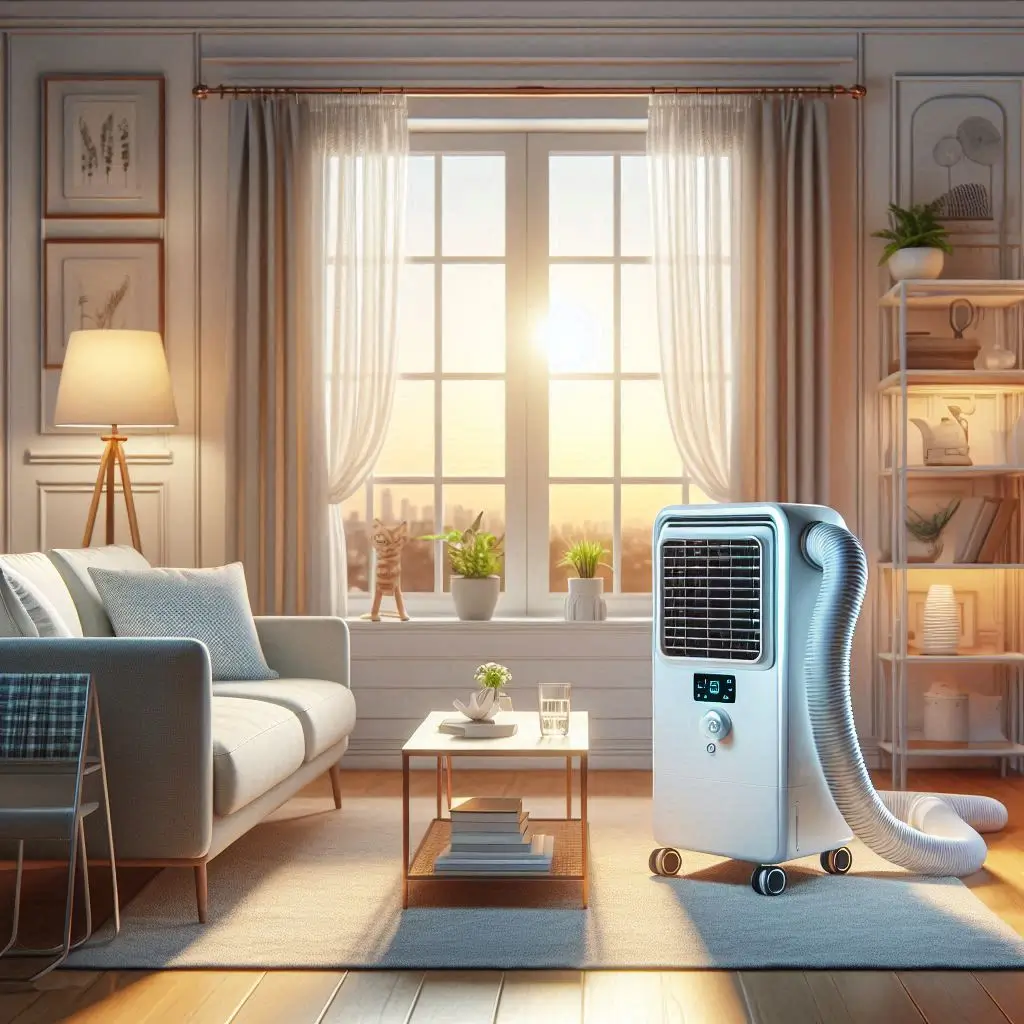Understanding When to Replace Your AC Unit
When you’re searching for “AC replacement near me,” it’s essential to understand the signs that your system needs replacement and how to choose the best option for your home. Whether you’re considering energy efficiency, cost savings, or professional installation, this guide will help you navigate the process and find the right AC replacement service near you.
Common Signs Your AC Needs Replacement
Several factors can signal that your air conditioner is no longer performing at its best. Recognizing these early signs can help you make an informed decision about replacement rather than dealing with costly repairs.
- Frequent Repairs: If your AC unit requires frequent repairs, it may be a sign that it’s reaching the end of its life. A unit that constantly breaks down could be more expensive to maintain than replacing it entirely.
- Increased Energy Bills: Over time, older AC units become less efficient, leading to higher energy consumption. If you notice a significant increase in your electricity bill, it could be due to an inefficient air conditioner struggling to maintain your home’s temperature.
- Uneven Cooling: If your AC isn’t cooling your home evenly, it could be due to a failing compressor or other components. While minor issues can be repaired, consistent uneven cooling is often a sign that your system isn’t functioning properly anymore.
- Strange Noises: If your AC unit is making unusual sounds like grinding, squealing, or banging, it’s an indication that something is wrong with its internal components. Although some sounds can be repaired, persistent issues may point to the need for replacement.
- Poor Airflow: Weak airflow or reduced cooling power is another common sign that your air conditioner may need replacing. Even after cleaning or servicing the filters, if airflow doesn’t improve, it may be time for a new unit.
- Old Age: If your air conditioner is over 10-15 years old, it might simply be reaching the end of its lifespan. AC units typically last between 10 and 15 years, so if yours is approaching that range, replacement should be considered.
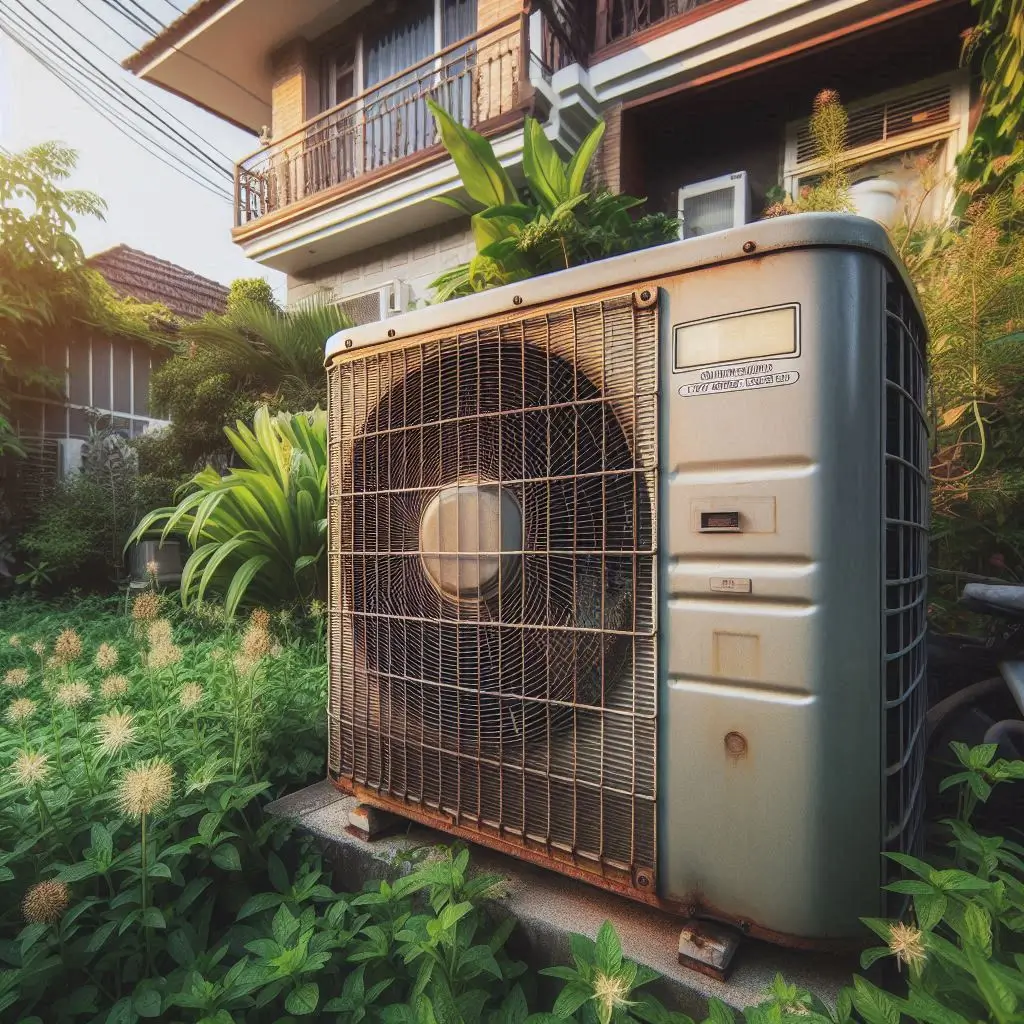
How Age Affects AC Performance
As air conditioning units age, their performance naturally declines. Even with regular maintenance, wear and tear can take a toll on the system’s components. Here’s how age can affect your air conditioner’s efficiency and effectiveness:
- Decreased Efficiency: As AC units age, their components such as the compressor, coils, and filters wear down, reducing their efficiency. Older units often use more energy to cool the same space, leading to higher electricity costs.
- Outdated Technology: Older AC models may not feature the latest energy-efficient technology, meaning they are likely using outdated refrigerants or mechanisms. Newer models often offer higher SEER (Seasonal Energy Efficiency Ratio) ratings, ensuring more efficient cooling at a lower cost.
- Increased Breakdowns: The older the unit, the more prone it becomes to breakdowns. Parts wear out, and it becomes increasingly difficult to find replacement parts for older models. This makes repairs less affordable and more time-consuming, which may justify replacing the system altogether.
- Environmental Impact: Older air conditioning units can be harmful to the environment due to the outdated refrigerants they use. For example, R-22 refrigerant, commonly found in older systems, has been phased out due to its contribution to ozone depletion. Replacing your old AC with a modern, eco-friendly model helps reduce your environmental impact.
- Compromised Comfort: Over time, an aging AC unit may struggle to maintain a comfortable temperature, especially on very hot days. It might not cool your home as effectively, leaving you with warm spots or inconsistent cooling throughout the house.
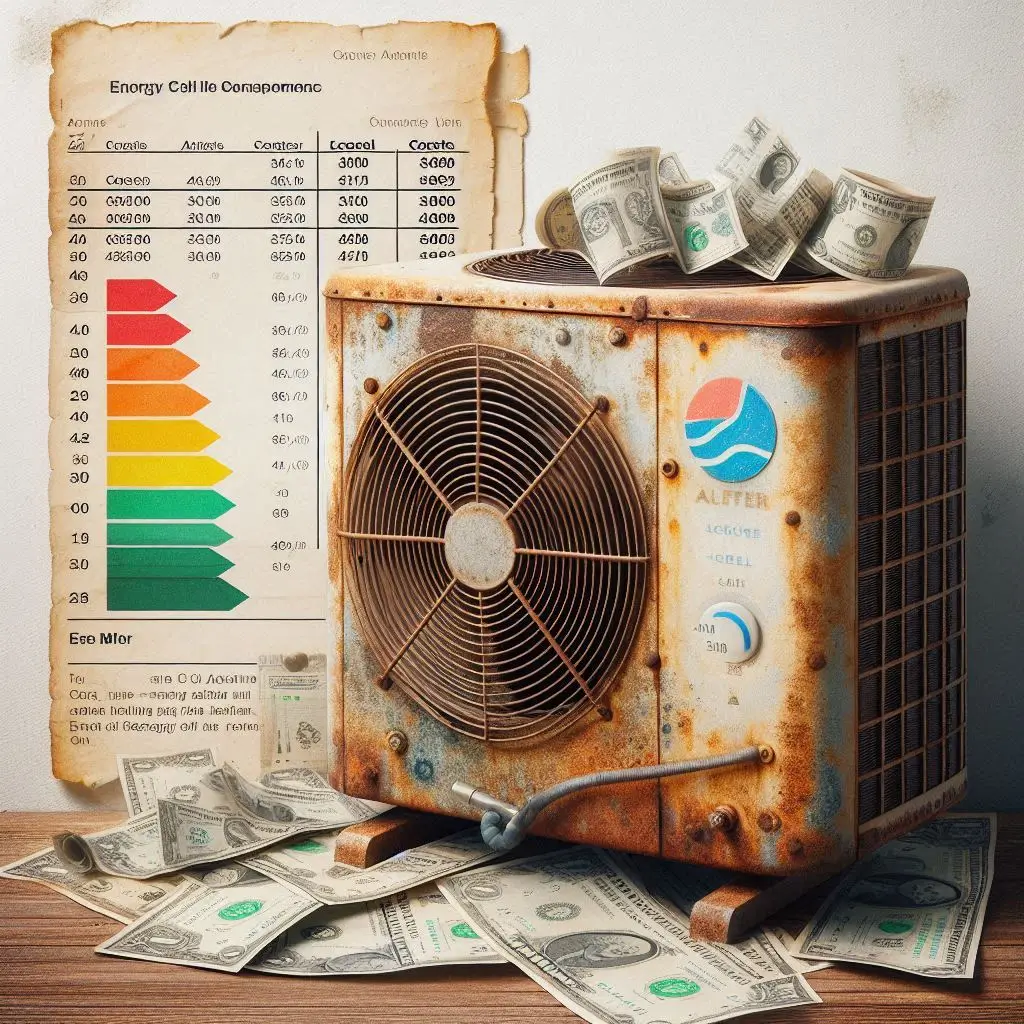
Choosing the Right AC Replacement for Your Home
Selecting the right air conditioner for your home is crucial to ensuring comfort, efficiency, and cost savings. Whether you’re replacing an old unit or installing an AC for the first time, the type of air conditioner you choose plays a significant role in your home’s cooling performance and your energy bills. There are a variety of AC types on the market, each with distinct advantages. In this section, we will dive into the different types of air conditioners and their benefits, followed by a detailed look at energy efficiency considerations that can help you make the most informed decision.
Types of Air Conditioners and Their Benefits
When it comes to replacing your AC, it’s important to consider the best fit for your home. Here are the most common types of air conditioners you can choose from:
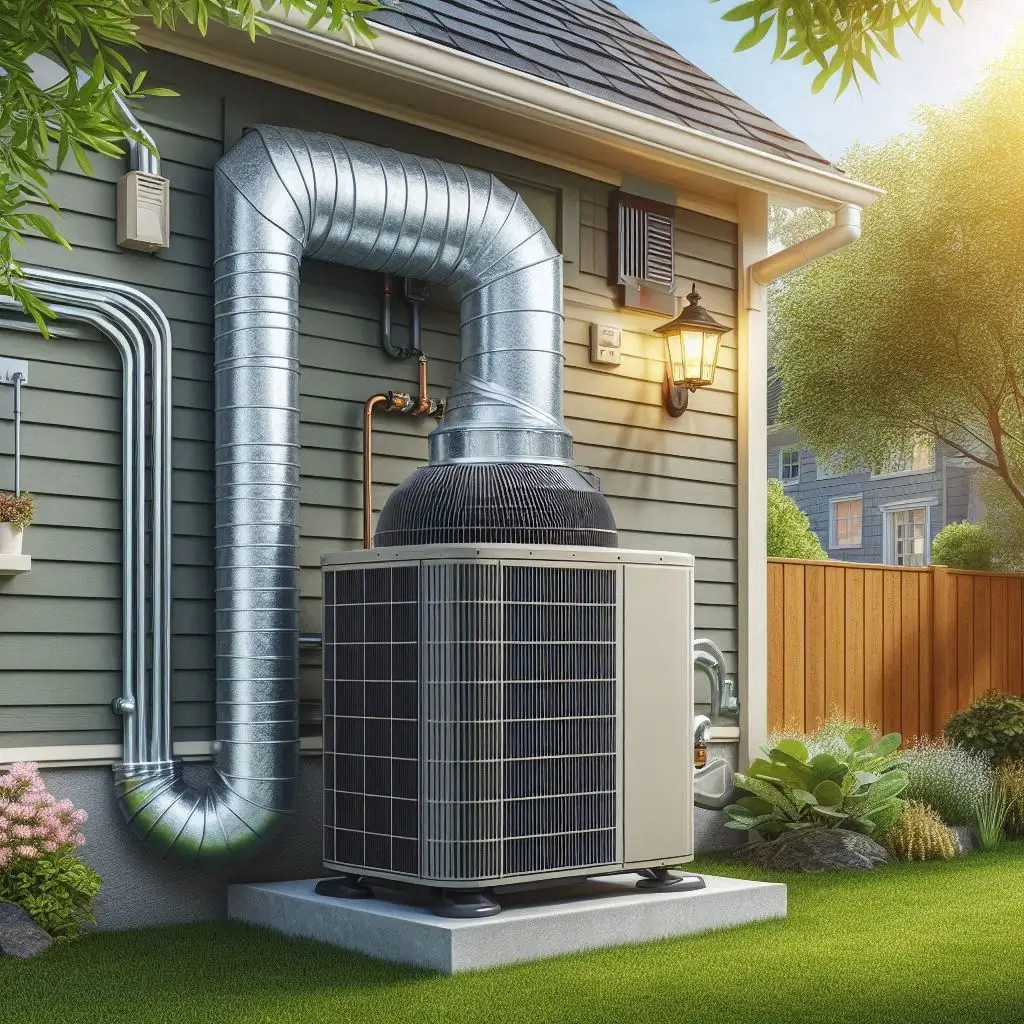
-
Central Air Conditioning
Overview: Central air conditioning is one of the most common types of cooling systems used in homes. It works by circulating cool air through ducts to each room in the house.
Benefits:- Whole-House Cooling: Ideal for cooling larger homes with multiple rooms.
- Consistent Temperature: Delivers even cooling across the entire home.
- Increased Home Value: Homes with central air conditioning often have a higher resale value.
-
Ductless Mini-Split Systems
Overview: A ductless mini-split system is a more flexible and energy-efficient option that does not require ducts. It consists of an outdoor compressor unit connected to one or more indoor air handlers.
Benefits:- No Ductwork Required: Ideal for homes without existing ducts or in spaces that cannot accommodate ductwork.
- Energy Efficient: Often more energy-efficient than traditional systems, especially for smaller homes or specific areas.
- Zoning Capability: Allows for different temperatures in various rooms, offering personalized comfort.
-
Window Air Conditioners
Overview: Window air conditioners are compact units that fit into a window or wall opening. These are often used to cool single rooms or small apartments.
Benefits:- Cost-Effective: Lower initial cost and easier to install compared to central AC systems.
- Portability: Can be easily removed and relocated, ideal for renters.
- Energy Efficient for Small Spaces: Best suited for smaller homes or single rooms where central air would be overkill.
-
Portable Air Conditioners
Overview: Portable AC units are self-contained systems that can be moved from room to room. They are vented through a window and are perfect for spaces where a permanent installation isn’t possible.
Benefits:- Easy to Move: Can be relocated to different rooms as needed.
- No Permanent Installation: A great option for renters or homes with limited space.
- Space-Saving: Doesn’t require window space, unlike window units.
Energy Efficiency Considerations
When selecting a new air conditioner, energy efficiency is one of the most important factors to consider. An efficient AC unit will not only keep your home cool but also help reduce your energy bills and environmental impact. Here are some key energy efficiency considerations to keep in mind:
-
SEER Rating (Seasonal Energy Efficiency Ratio)
The SEER rating measures how efficiently an air conditioning unit uses energy over the course of a cooling season. The higher the SEER rating, the more efficient the unit.- High SEER Rating: A unit with a SEER rating of 16 or higher is considered energy-efficient and can lead to significant savings on your utility bills.
- Government Standards: In many regions, new AC units are required to meet minimum SEER standards. Look for units that exceed these standards for maximum efficiency.
-
Energy Star Certification
Energy Star-certified units meet strict energy efficiency guidelines set by the U.S. Environmental Protection Agency (EPA). These units are designed to deliver high performance while consuming less energy.- Benefits:
- Lower operating costs
- Reduced environmental impact
- Access to rebates and incentives from utility companies
- How to Find: Look for the Energy Star label on the unit or its packaging to ensure it meets these efficiency standards.
- Benefits:

-
Variable-Speed Compressors
Many newer AC units feature variable-speed compressors, which adjust their cooling output based on the temperature needs of your home. This is a major upgrade over traditional single-speed compressors that run at full capacity all the time.- Benefits:
- More consistent cooling
- Lower energy consumption
- Longer lifespan due to less wear and tear
- Ideal for Homes with High Cooling Demand: Homes with fluctuating cooling needs can greatly benefit from variable-speed technology, as it helps to optimize energy use.
- Benefits:
-
Proper Sizing of the Unit
One of the most important considerations for energy efficiency is ensuring your new AC is the correct size for your space. An undersized unit will struggle to cool your home, while an oversized unit will waste energy and wear out prematurely.- Consult an Expert: An HVAC professional can perform a load calculation to determine the ideal size for your home based on square footage, insulation, and other factors.
By considering these energy efficiency features, you can select an AC unit that will provide reliable cooling while minimizing energy waste and lowering your monthly utility costs.

Finding the Best AC Replacement Service Near You
When it comes to replacing your air conditioner, choosing the right HVAC contractor is just as important as selecting the right unit. A professional contractor will ensure that your new AC system is properly installed, running efficiently, and providing reliable service throughout its lifespan. This section will guide you on what to look for in a trustworthy HVAC contractor and how to compare local AC replacement providers to find the best service for your needs.
What to Look for in a Reliable HVAC Contractor
Selecting a reputable HVAC contractor is essential to ensuring that your AC replacement goes smoothly. Here are the key factors to consider when evaluating potential service providers:
-
License and Certification
- Why it Matters: A certified and licensed HVAC contractor has the required training and qualifications to perform AC installations and replacements safely and effectively.
- What to Check: Ensure the contractor is licensed by your state or local government and holds certifications from recognized organizations like North American Technician Excellence (NATE) or the Refrigeration Service Engineers Society (RSES).
-
Experience and Reputation
- Why it Matters: A well-established contractor with years of experience is likely to provide better service and a higher-quality installation.
- What to Check: Look for contractors with a track record of successful AC replacements in your area. Read online reviews, ask for customer testimonials, and check their reputation on trusted platforms like Google or the Better Business Bureau (BBB).
-
Transparent Pricing
- Why it Matters: Reliable contractors will provide clear, upfront pricing for AC replacements, so you won’t be hit with unexpected costs.
- What to Check: Ask for a detailed written estimate that includes all costs, including installation, labor, and any potential additional charges. Make sure there are no hidden fees, and the contractor is transparent about the scope of work.
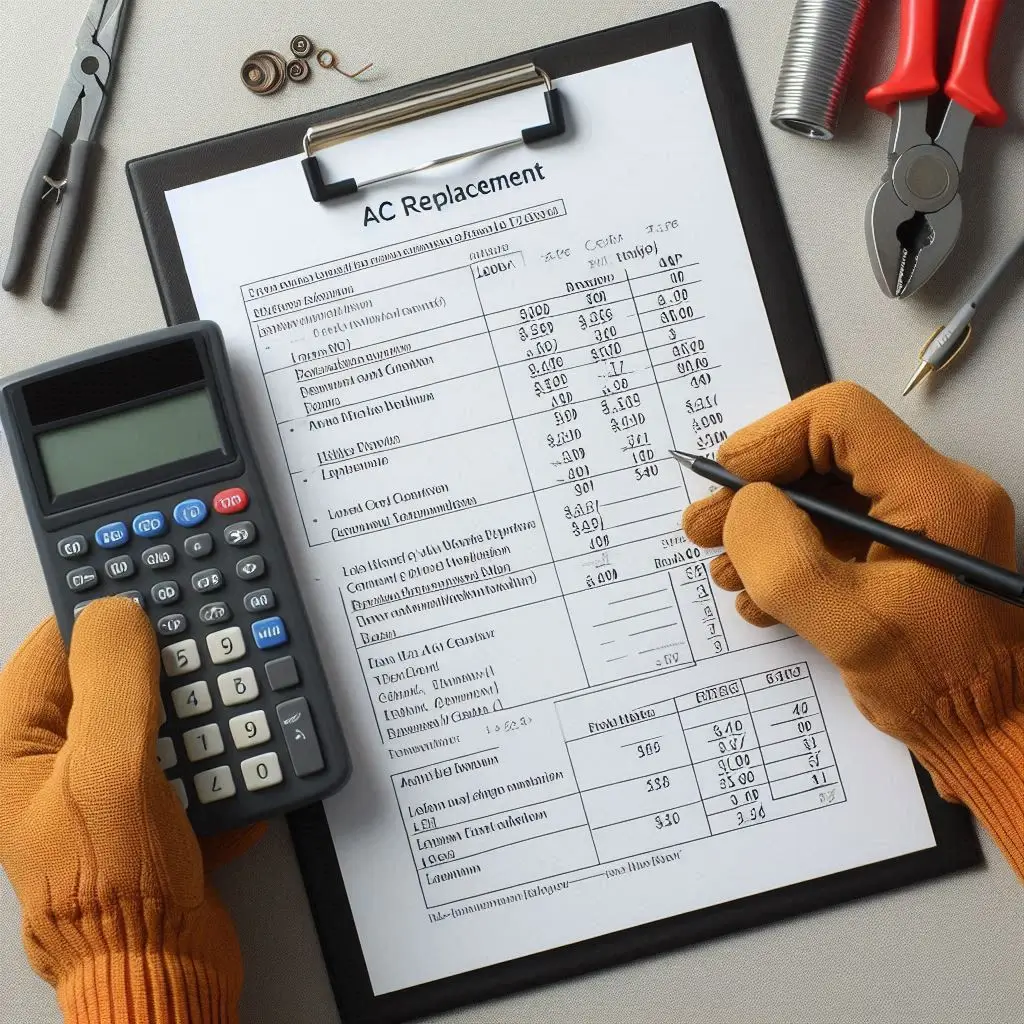
-
Warranty and Service Agreements
- Why it Matters: A reputable HVAC contractor will stand behind their work with warranties on both the equipment and the installation.
- What to Check: Ensure the contractor offers a warranty for their services, and find out what it covers. Also, inquire about maintenance or service agreements that may be available for ongoing support after the installation.
-
Energy Efficiency Knowledge
- Why it Matters: An experienced contractor will help you choose an energy-efficient AC unit that fits your home’s needs, saving you money in the long run.
- What to Check: Ask the contractor about energy-efficient systems, SEER ratings, and rebates or incentives that may be available for energy-efficient installations. A good contractor should be knowledgeable about the latest advancements in HVAC technology.
By carefully evaluating these factors, you can ensure that you hire an HVAC contractor who will provide expert service and a smooth AC replacement experience.

Comparing Local AC Replacement Providers
When looking for the best AC replacement service near you, comparing different local contractors is crucial to making the right choice. Here are some tips on how to effectively compare AC replacement providers in your area:
-
Check Local Reviews and Testimonials
- Why it Matters: Local reviews can give you insight into how well a contractor serves customers in your area. Positive feedback from neighbors and community members can help guide your decision.
- What to Compare: Look at the overall customer satisfaction, punctuality, quality of work, and customer service. Consider contractors who have consistently positive reviews and have been in business for several years.
-
Get Multiple Estimates
- Why it Matters: Getting multiple estimates allows you to compare prices and service offerings to find the best value for your AC replacement.
- What to Compare: Request written estimates from at least three different contractors. Be sure to compare both the overall cost and the specific services provided, including installation, warranty, and post-installation support.
-
Check for Local Expertise
- Why it Matters: Local contractors will have experience working with the specific climate conditions and building codes in your area. They will also be more familiar with the needs of local homeowners and their cooling demands.
- What to Compare: Ask contractors about their experience working in your region and with homes of your size and type. A local provider will have the expertise to select the best unit for your needs and ensure compliance with local regulations.
-
Look for Special Offers and Discounts
- Why it Matters: Many local HVAC contractors offer seasonal promotions, rebates, or special financing options to help reduce the cost of your AC replacement.
- What to Compare: Check for any current discounts, rebates, or special deals that could make your AC replacement more affordable. Some contractors may offer discounts for first-time customers, referrals, or energy-efficient units.
-
Assess Customer Support and Availability
- Why it Matters: After your AC replacement, you’ll want to know that you can easily reach your contractor if you encounter any issues with your system.
- What to Compare: Evaluate the level of customer support each provider offers. Do they provide emergency services? Are they available for routine maintenance or repairs? A reliable provider will offer excellent post-installation customer service to ensure your satisfaction.
By comparing local contractors based on these criteria, you can confidently choose the best AC replacement service in your area that suits your budget and needs.

AC Replacement Costs and Financing Options
Replacing an air conditioner can be a significant investment for homeowners. However, understanding the factors that contribute to the overall cost and exploring available financing options can help you manage the expense. This section will provide a breakdown of the primary factors that affect AC replacement pricing, and discuss the financing and incentive programs that may be available to reduce your upfront costs.
Factors That Affect AC Replacement Pricing
The cost of replacing your air conditioner can vary widely based on several factors. Here are the key considerations that influence the overall price of an AC replacement:
-
Type and Size of the AC Unit
- Why it Matters: The size and type of the air conditioner you select plays a major role in the price. Larger units or those with higher energy efficiency ratings tend to cost more, but they offer greater cooling power and energy savings.
- What to Consider: Choose an air conditioner that matches the size of your home and cooling needs. An oversized unit may cost more initially but may reduce energy bills over time, while a smaller unit could result in less efficient cooling and higher operational costs.
-
Brand and Model
- Why it Matters: The brand and model you choose will significantly influence the price. Top-tier brands with advanced technology tend to cost more, but they often come with extended warranties, better performance, and higher reliability.
- What to Consider: While high-end brands may come with a higher price tag, consider the long-term benefits of investing in a reputable brand known for durability and energy efficiency.
-
Installation Complexity
- Why it Matters: The complexity of the installation process can add to the overall cost. Factors such as the location of the unit, the condition of your ductwork, and the need for electrical upgrades can all affect installation fees.
- What to Consider: If your existing system requires extensive modifications to accommodate the new unit, you may incur additional costs. Always request a thorough inspection and estimate from your contractor before proceeding.
-
Energy Efficiency and SEER Rating
- Why it Matters: Air conditioners with higher Seasonal Energy Efficiency Ratio (SEER) ratings are more energy-efficient, which means they will save you money on utility bills in the long term. However, these units tend to have a higher initial cost.
- What to Consider: While higher SEER-rated units may cost more upfront, the savings on your monthly energy bill can offset the initial investment. In some cases, utility companies or the government may offer incentives for choosing an energy-efficient model.
-
Location and Labor Costs
- Why it Matters: The location of your home can impact the price of AC replacement, as labor rates and installation fees vary by region. In metropolitan areas, the cost of living and local demand for HVAC services can influence the overall price.
- What to Consider: Always request a written estimate from multiple contractors to compare labor costs and ensure you’re getting a fair price. Some areas may offer competitive pricing, while others may have higher rates due to limited service providers.
By considering these factors, you can get a clearer picture of the cost involved in replacing your air conditioner and make an informed decision that fits both your budget and cooling needs.
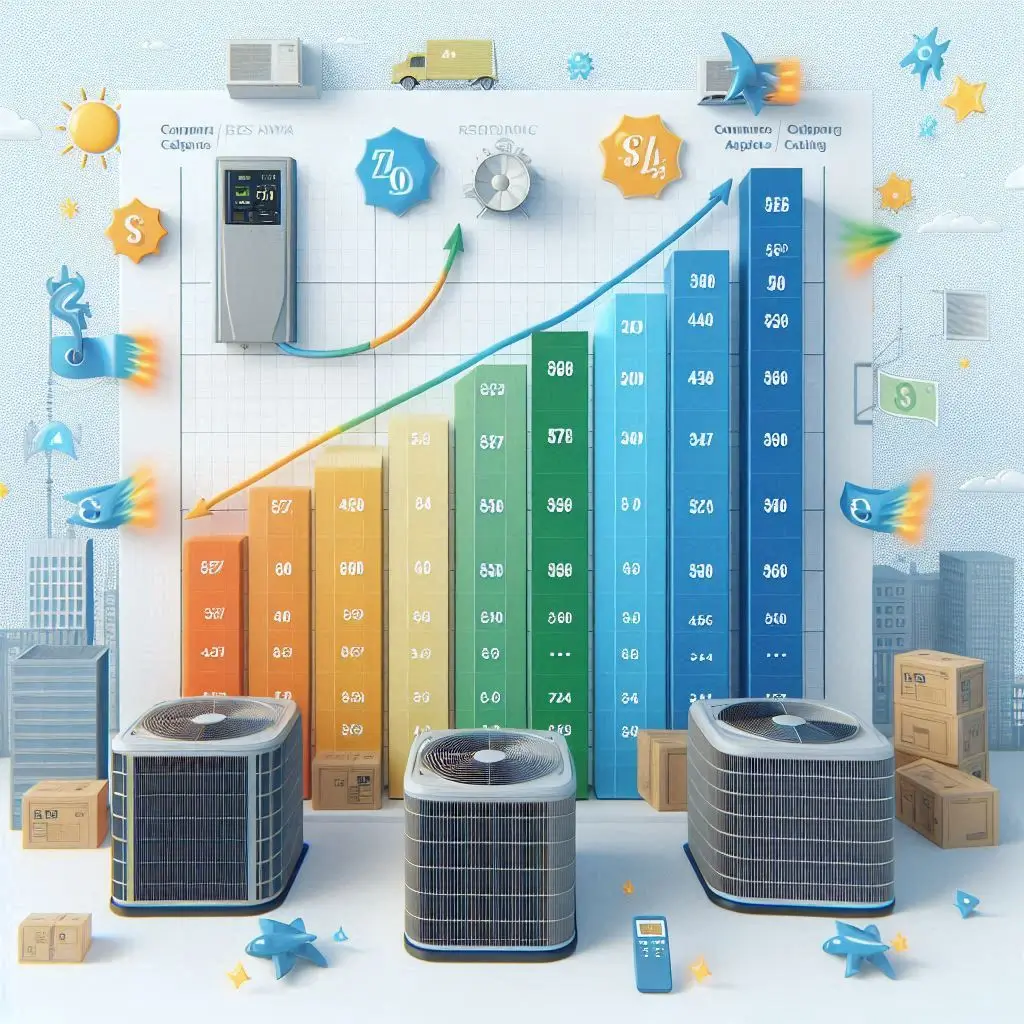
Available Financing and Incentive Programs
Paying for an AC replacement can be a large upfront expense. Thankfully, there are financing options and incentive programs available to help ease the financial burden. Here are some of the most common ways homeowners can finance an AC replacement:
-
Manufacturer Financing
- Why it Matters: Many AC manufacturers offer financing plans directly through their dealerships. These plans often include promotional offers such as zero-interest for a specific period or low monthly payments.
- What to Consider: Before choosing manufacturer financing, read the fine print. While these offers can be attractive, make sure you understand the terms, including interest rates after the promotional period ends and any fees associated with the loan.
-
Home Improvement Loans
- Why it Matters: If you’re replacing your AC as part of a larger home renovation project, you might consider taking out a home improvement loan. These loans are often offered at competitive rates and can help cover both the cost of the unit and any necessary installation.
- What to Consider: Home improvement loans can be secured or unsecured, and terms vary based on your creditworthiness. Make sure to shop around for the best rates and repayment options.
-
Government Rebates and Incentives
- Why it Matters: To encourage homeowners to invest in energy-efficient HVAC systems, the government often provides rebates and tax incentives for qualifying systems. These incentives can significantly reduce the overall cost of AC replacement.
- What to Consider: Check with local utility companies or government websites to see if there are any rebate programs or tax credits available for energy-efficient AC units. Be sure to verify that the model you choose qualifies for the rebate.
-
Credit Cards and Personal Loans
- Why it Matters: If you prefer to finance your AC replacement through credit, many homeowners turn to credit cards or personal loans. Some credit cards offer special financing options, while personal loans provide flexibility in repayment terms.
- What to Consider: Be cautious with high-interest rates associated with credit cards. If you’re considering a personal loan, compare the terms and rates to ensure you’re getting the best deal.
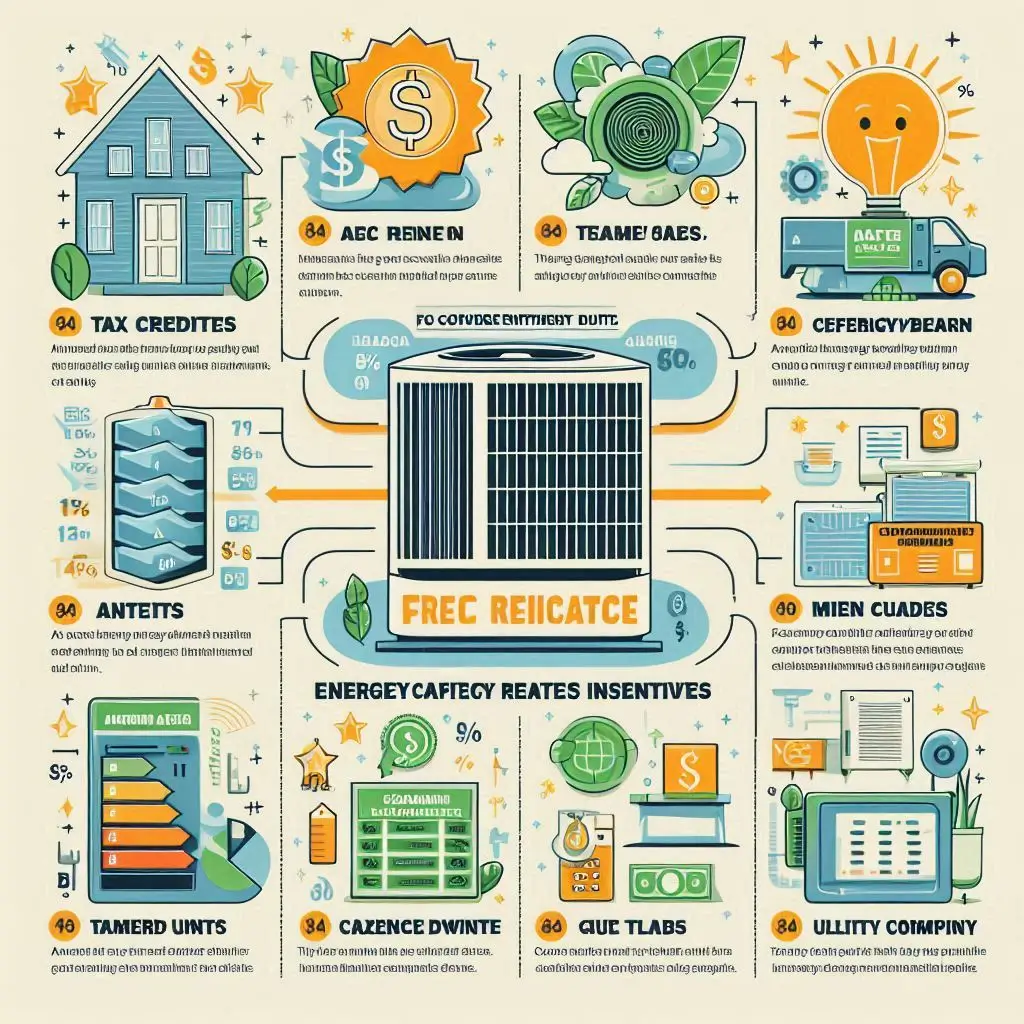
Benefits of Professional AC Installation
When it comes to replacing your air conditioner, proper installation is crucial for ensuring the longevity and efficiency of your system. Choosing professional AC installation services not only guarantees the optimal performance of your new unit but also ensures that you are getting the most out of your investment. In this section, we’ll explore the key benefits of professional AC installation, focusing on why it matters and how it can help improve the long-term efficiency of your air conditioning system.
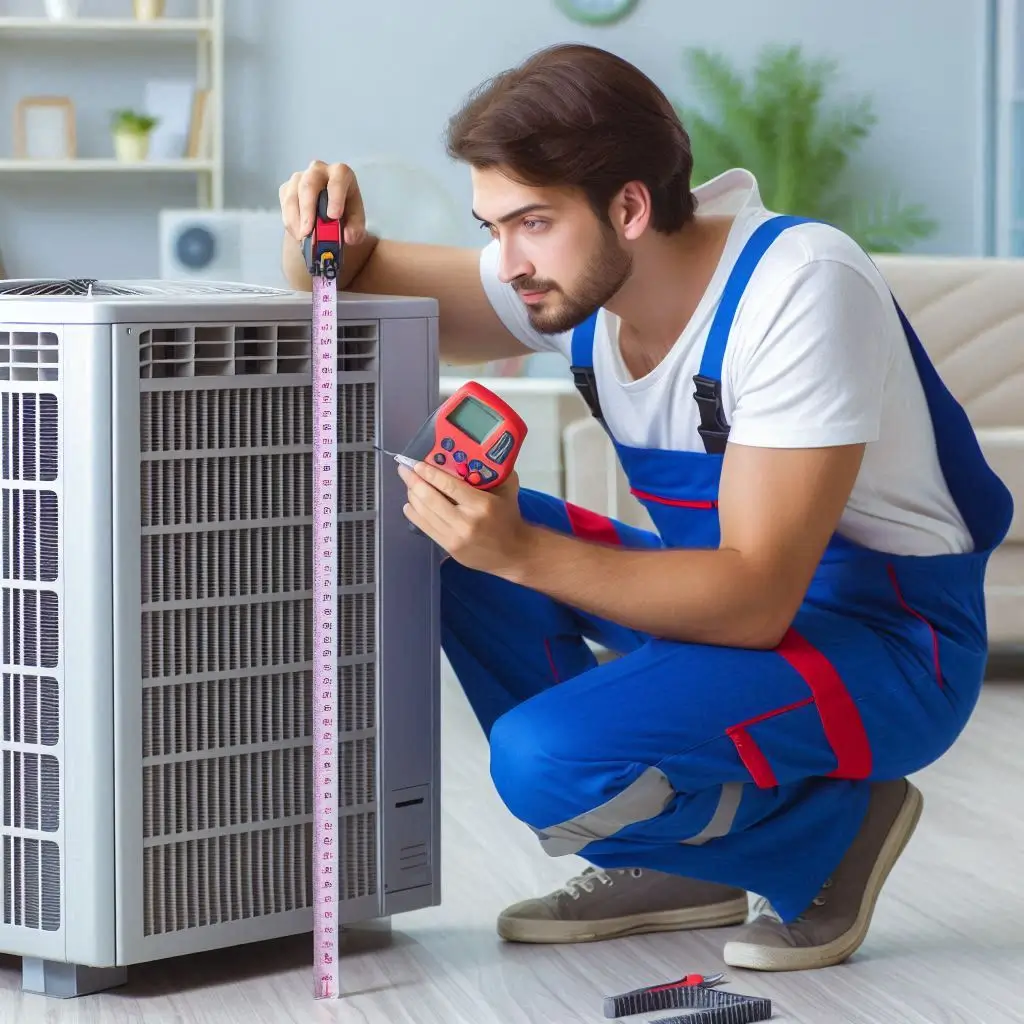
Why Proper Installation Matters
Proper installation is the foundation of an efficient and reliable air conditioning system. A poorly installed unit can lead to frequent breakdowns, reduced energy efficiency, and increased repair costs. Here’s why correct installation is so important:
-
Ensures Optimal System Performance
- Why It Matters: A professional installer will ensure that your new air conditioner is set up correctly to perform at its best. This includes correctly sizing the unit to match your home’s cooling needs, proper placement for maximum airflow, and correct electrical connections.
- What to Consider: If your unit is too large or too small for your space, it can lead to inefficient cooling and higher energy bills. A professional will carefully assess your home’s needs and choose the right unit.
-
Prevents Common Installation Issues
- Why It Matters: DIY or amateur installations can lead to issues like refrigerant leaks, improper ductwork, or insufficient insulation. These problems not only reduce the efficiency of the AC but also contribute to higher energy bills and frequent repairs.
- What to Consider: Professional technicians are trained to handle all aspects of installation, ensuring that common issues like air leaks, improper sealing, and inadequate insulation are avoided.
-
Ensures Compliance with Local Codes and Regulations
- Why It Matters: Many local building codes and regulations govern the installation of HVAC systems. Professional technicians are familiar with these codes and ensure that your new system complies with all legal requirements.
- What to Consider: If your system is not properly installed in accordance with local codes, you could face fines, penalties, or complications when selling your home.
-
Avoids Warranty Voiding
- Why It Matters: Most manufacturers require professional installation to validate the warranty on your new AC unit. If the system is improperly installed, it may void the warranty, leaving you responsible for any repair costs.
- What to Consider: Always ensure that your AC is installed by a licensed professional to protect your warranty and ensure that future repairs are covered.
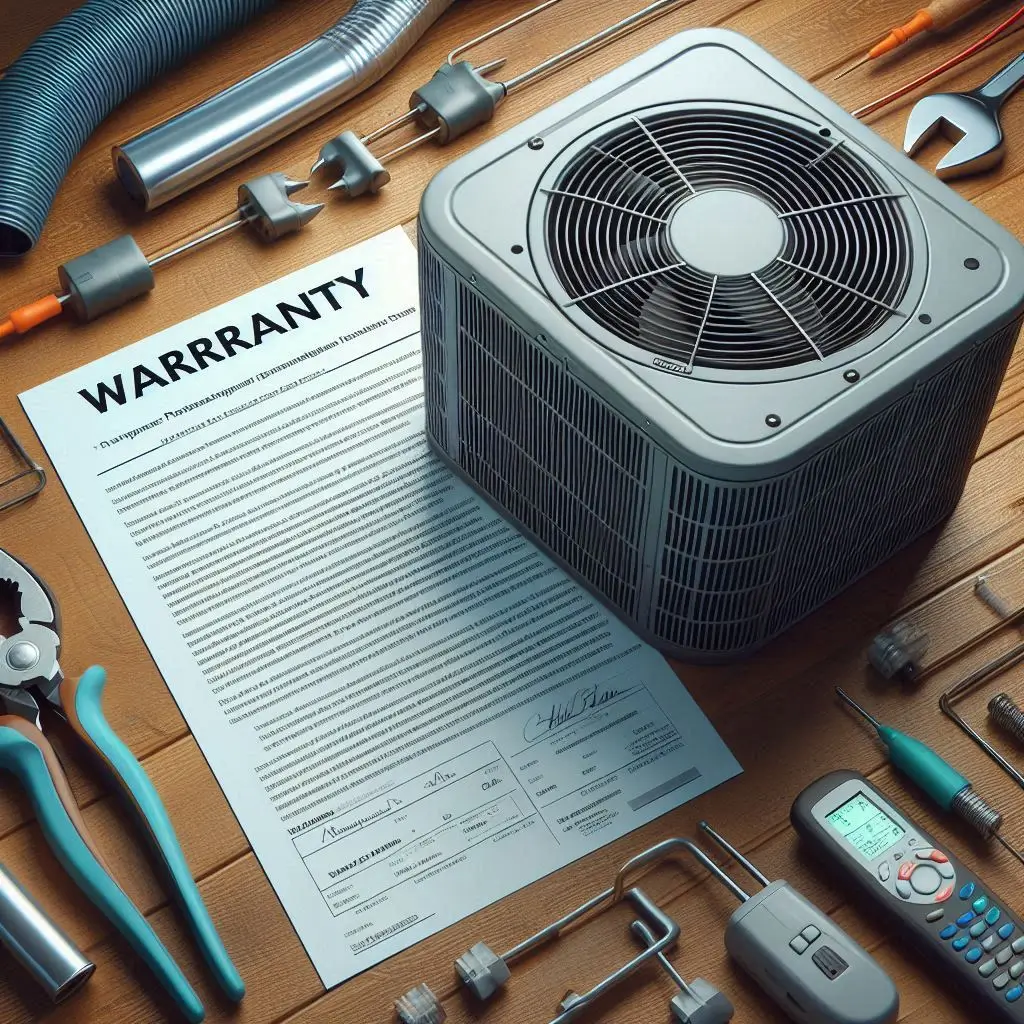
How Professional Services Ensure Long-Term Efficiency
Beyond the initial installation, professional services play a key role in maintaining the long-term efficiency of your air conditioner. Here’s how expert installation helps ensure the ongoing performance and savings of your AC unit:
-
Proper System Calibration and Setup
- Why It Matters: Professional installers calibrate the system to optimize its performance. This includes setting the correct airflow, refrigerant charge, and temperature settings. These adjustments help ensure that the AC operates efficiently throughout its lifespan.
- What to Consider: A system that’s not calibrated properly will work harder to cool your home, resulting in higher energy consumption and shorter lifespan. A professional installer ensures that everything is set up for optimal performance.
-
Enhanced Energy Efficiency
- Why It Matters: A professionally installed AC unit will run more efficiently, leading to lower energy bills and a smaller environmental footprint. Incorrectly installed systems often waste energy due to poor airflow, improperly sealed ducts, or miscalibrated thermostats.
- What to Consider: By choosing a professional installer, you ensure that your system is optimized for energy efficiency, saving you money over time and reducing your environmental impact.
-
Reduced Risk of Breakdowns and Expensive Repairs
- Why It Matters: Professional installation reduces the risk of breakdowns caused by improper setup or faulty connections. Technicians thoroughly test the system during installation to identify any issues before they become costly repairs.
- What to Consider: A unit installed by a professional is less likely to require expensive repairs in the future, saving you money and stress in the long term.
-
Regular Maintenance for Longevity
- Why It Matters: Many professional AC installation services also offer regular maintenance plans that ensure the continued efficiency of your system. Routine maintenance helps keep your system running smoothly and extends its lifespan.
- What to Consider: By signing up for professional maintenance, you can avoid common problems such as clogged filters, dirty coils, and refrigerant leaks. Regular upkeep is essential for long-term efficiency.
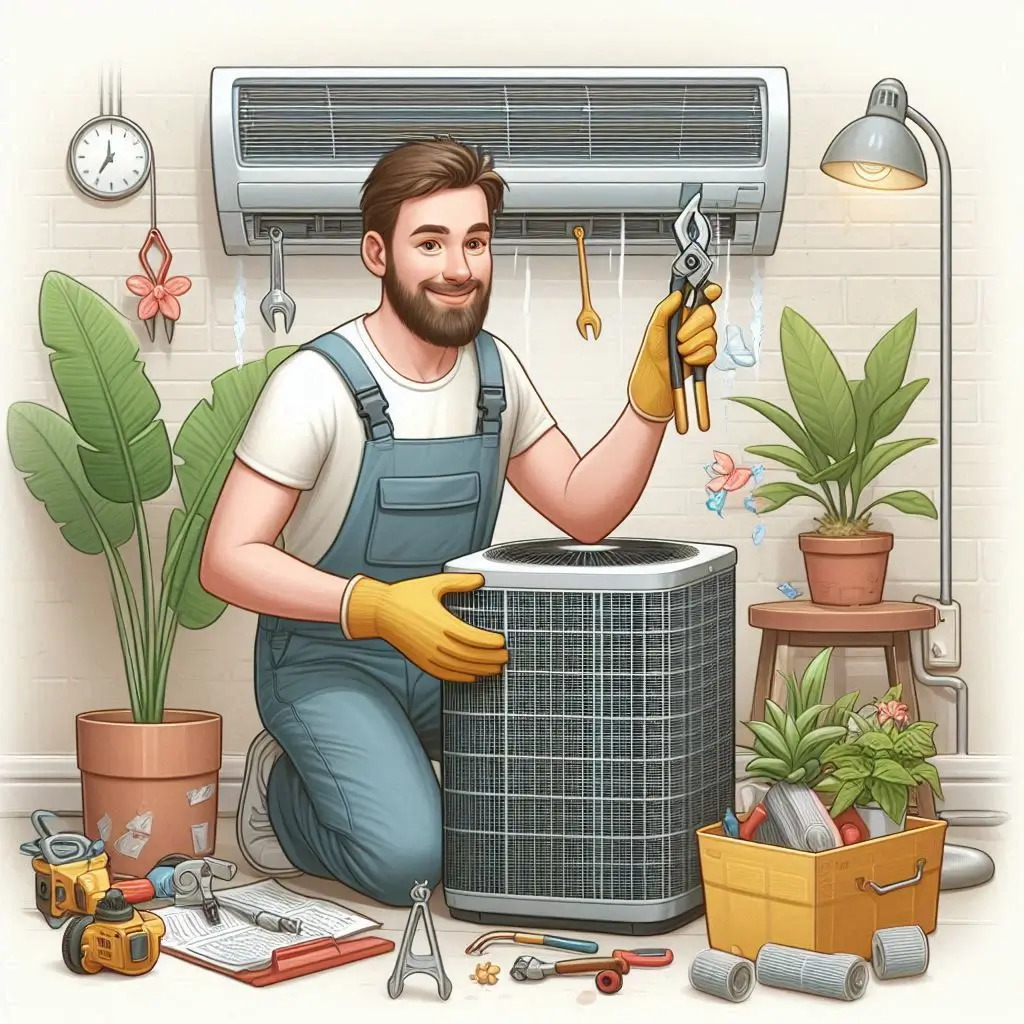
FAQ Section: AC Replacement Near Me
Q1: How do I know when it’s time to replace my AC unit?
Replacing your air conditioner at the right time can save you money on repairs and prevent discomfort in your home. Here are the key signs that it’s time to replace your AC unit:
-
Age of the Unit
- Most air conditioners last between 10 to 15 years. If your AC is nearing or surpassing this age, it’s a good idea to start considering a replacement. Older units are less energy-efficient and more prone to frequent breakdowns, which can be costly.
-
Frequent Repairs
- If your air conditioner needs frequent repairs, it might be more cost-effective to replace it rather than continue investing in repairs. A professional HVAC technician can help assess whether it’s more economical to replace the unit than to keep fixing it.
-
High Energy Bills
- If your energy bills have been steadily increasing, it may be due to an inefficient or failing AC unit. Older systems often lose their ability to cool effectively, causing them to run longer and consume more energy.
-
Inconsistent Cooling or Warm Air
- If your AC is blowing warm air or struggling to maintain a consistent temperature, it could be a sign that the system is failing. A professional technician can assess whether repair or replacement is the best option.

Q2: What factors should I consider when choosing a new air conditioner?
When selecting a new AC unit, it’s essential to consider several factors to ensure you choose the best system for your needs:
-
Size of the Unit
- One of the most important factors is selecting the right size for your home. An AC unit that is too small will struggle to cool your home, while a unit that is too large will waste energy. A professional HVAC technician can perform a load calculation to determine the right size for your space.
-
Energy Efficiency
- Look for energy-efficient models that have a high SEER (Seasonal Energy Efficiency Ratio) rating. These units use less electricity, which will lower your energy bills and reduce your environmental impact.
-
Type of Air Conditioner
- There are several types of air conditioners to choose from, including central air systems, ductless mini-split systems, and window units. The best choice depends on your home’s layout, budget, and cooling needs.
Q3: How much does it cost to replace an air conditioner?
The cost of replacing an air conditioner can vary depending on factors like the size of the unit, the type of AC system, and your location. However, you can expect the following general price ranges:
-
Average Cost of AC Replacement
- On average, the cost of replacing an air conditioner ranges from $3,000 to $7,000. This includes the cost of the unit and installation fees. The price can vary based on the system’s efficiency, brand, and the complexity of the installation.
-
Additional Costs
- Additional costs may include ductwork modifications, electrical upgrades, or removal and disposal of the old unit. It’s essential to get a detailed estimate from your HVAC provider to understand all potential costs.
-
Financing Options
- Many HVAC companies offer financing plans to help cover the cost of replacing your AC. Be sure to ask about payment plans, incentives, or rebates that may be available in your area to reduce the overall expense.

Q4: How long does the AC replacement process take?
The time it takes to replace an air conditioner depends on the complexity of the installation, but on average, the process takes about 4 to 8 hours. Here’s what to expect:
-
Initial Assessment
- A professional technician will begin by assessing your home’s needs, including checking the size of your space and evaluating the existing ductwork. This step usually takes 1 to 2 hours.
-
Installation
- After the assessment, the technician will install the new system. This typically takes about 4 to 6 hours for a central AC system or 2 to 4 hours for a ductless system.
-
Final Testing and Adjustments
- Once the installation is complete, the technician will run tests to ensure everything is functioning properly. This step ensures that the unit is running efficiently and cooling your home effectively.
Q5: Can I install my new AC unit myself, or do I need a professional?
While it may be tempting to save money by installing your own AC unit, professional installation is highly recommended for several reasons:
-
Complexity of Installation
- Installing an air conditioner involves working with electrical systems, refrigerant, and ductwork, which can be dangerous without proper training. A licensed professional has the expertise to safely handle the installation.
-
Warranty Protection
- Most manufacturers require professional installation to validate the warranty. If you attempt a DIY installation and something goes wrong, you may void the warranty, leaving you responsible for repair costs.
-
Efficiency and Safety
- Professional installers ensure that the system is properly sized, connected, and calibrated, which leads to better energy efficiency and fewer repairs over time.
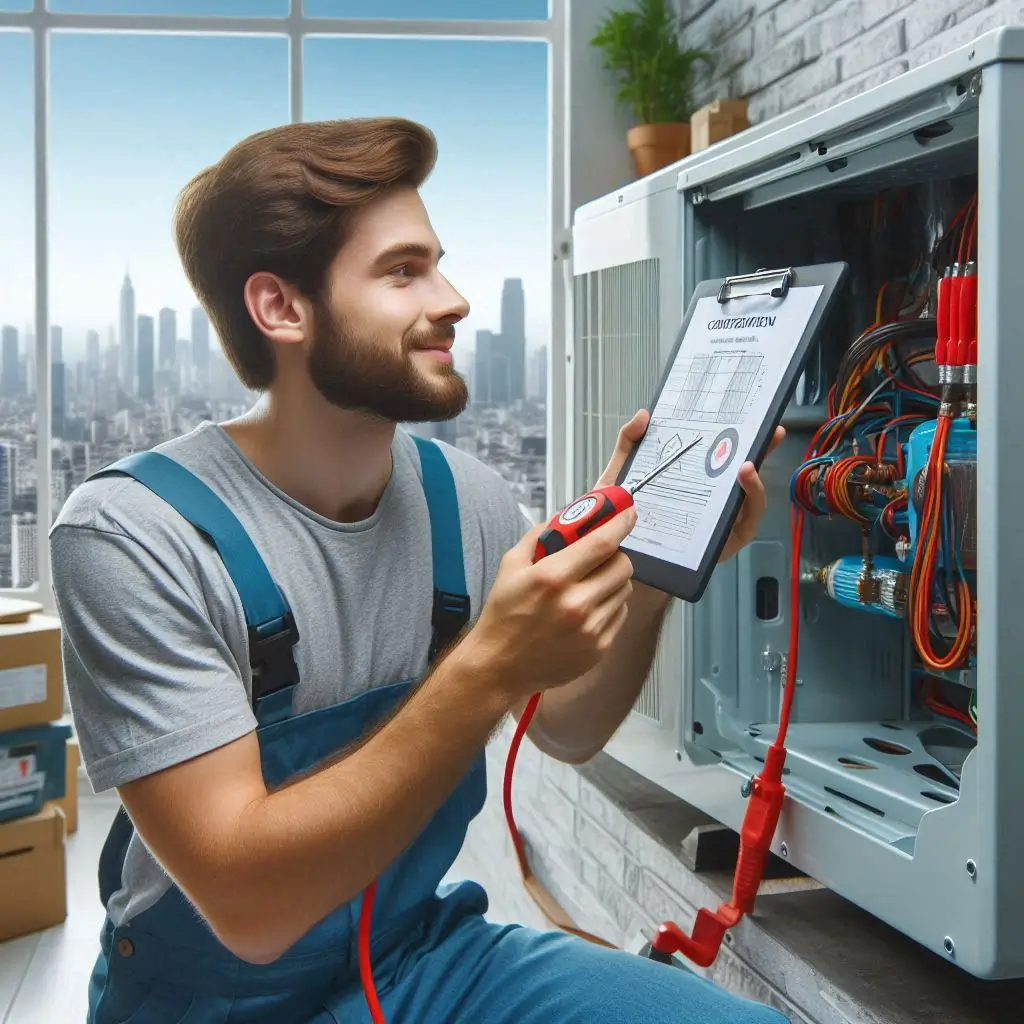
Conclusion:
In conclusion, replacing your air conditioner is a significant investment in your home’s comfort and energy efficiency. Understanding when it’s time for a replacement, choosing the right system, and working with a reliable HVAC professional are all crucial steps in ensuring you get the best results. By considering factors such as the size of the unit, energy efficiency, and available financing options, you can make an informed decision that fits your needs and budget. Don’t forget to prioritize professional installation to ensure your system operates at peak performance for years to come. If you’re ready to upgrade your AC or need help finding the best replacement service near you, reach out to a trusted HVAC provider today. Your home’s comfort and energy savings are worth it.


